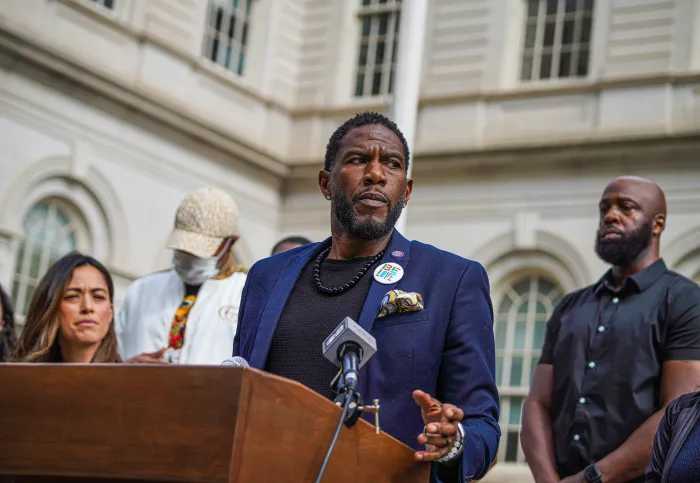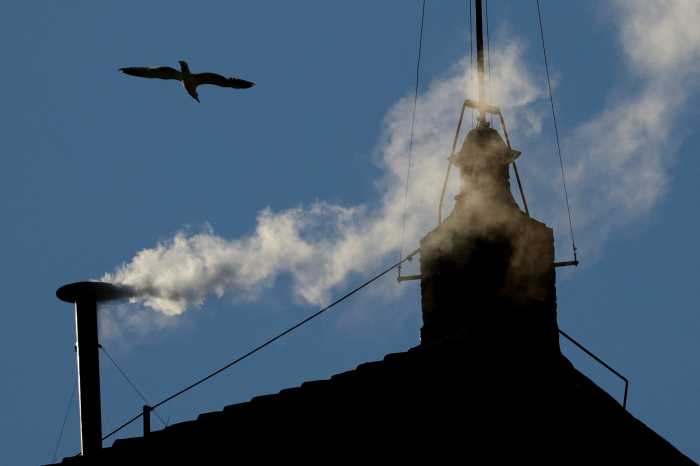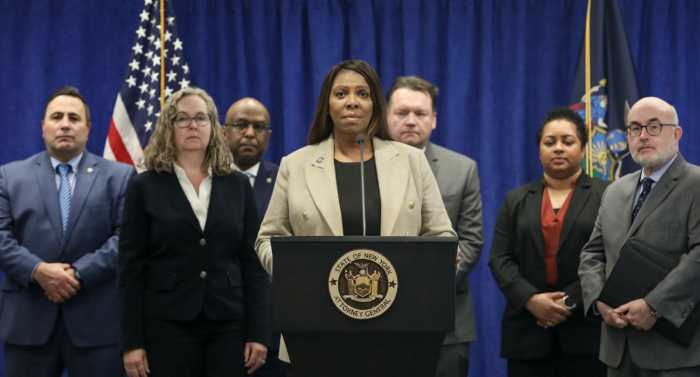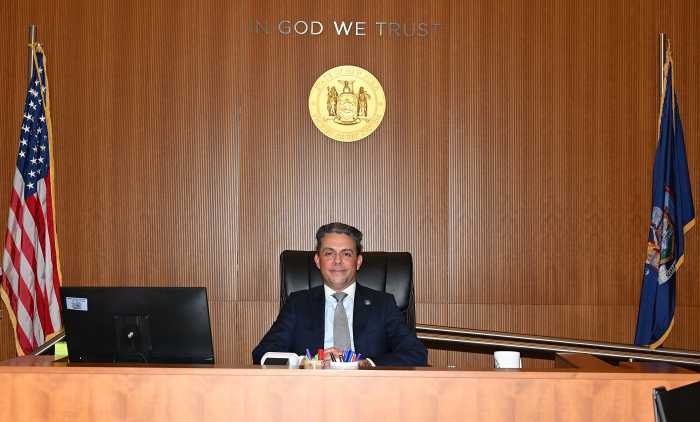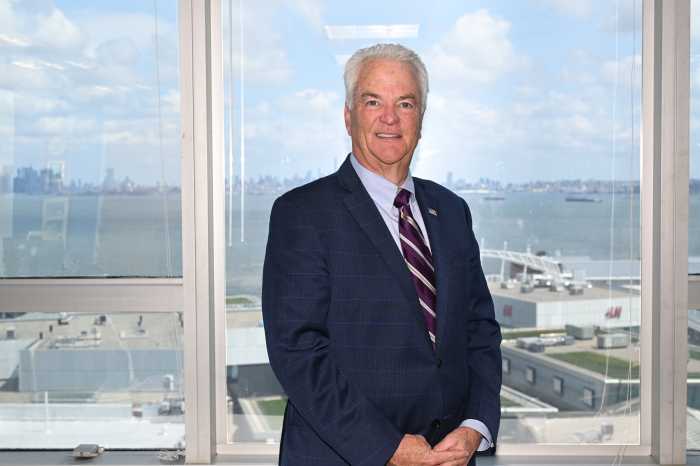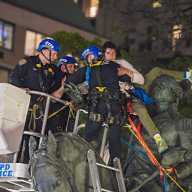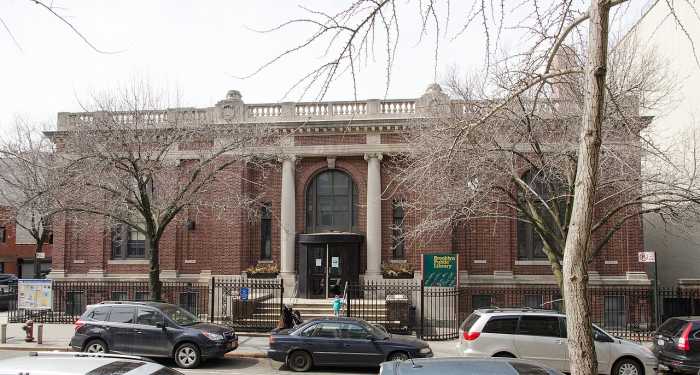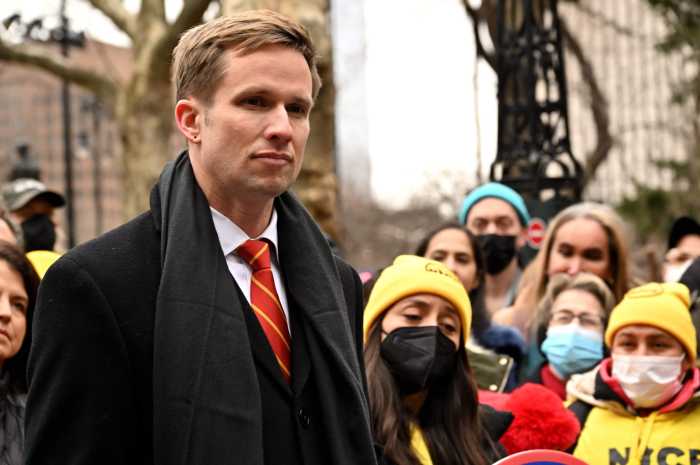Being mayor of the city that never sleeps is more than a full-time job. It’s 24/7, and every day feels like a leap year. But even mayors sometimes need to go out of town, take a day off, or deal with a medical condition. Who’s in charge when they do?
Succession is laid out in section 10 of the New York City Charter. It specifies what occurs in the case of the suspension of the mayor from office, the mayor’s temporary inability to discharge their powers and duties by reason of sickness or otherwise, or the mayor’s absence from the city.
On its face, the charter provides that the powers and duties of the office of the mayor “devolve” temporarily upon the public advocate, a citywide elected position currently held by Jumaane Williams, until there is no longer a need. However, there are huge carve-outs designed to prevent the public advocate from messing up the mayor’s administration during a brief hiatus. The “acting” mayor has no power to make appointments or to remove anyone from office. They can’t sign or veto legislation for the first nine days, with limited exception. Most importantly, they cannot exercise any power lawfully delegated by the mayor to a deputy mayor.
Typically, that delegation is quite extensive. Most recently updated in Executive Order 49, it provides, in addition to over a dozen specific responsibilities, that, “The First Deputy Mayor hereby is delegated the authority to perform all functions, powers, or duties of the Mayor which the Mayor is authorized to delegate in the event that the Mayor is unable to perform such functions, powers, or duties for a reason specified in subdivision a of section 10 of the New York City Charter.”
It is unclear whether the state Domestic Relations Law provision for the mayor to perform weddings devolves to an acting mayor, but that appears to be non-delegable.
In the case of Mayor Eric Adams, each temporary succession circumstance has warranted consideration in the past few months. There was the possibility of his suspension by Governor Kathy Hochul after several of his deputy mayors resigned in protest of his decision to cooperate with President Donald Trump’s immigration enforcement coincided with the Justice Department’s determination to drop criminal charges against him. Ultimately, the governor decided not to pursue that path. Had the mayor been removed or resigned, the charter provides for the public advocate to become acting mayor with full authority until there is either a special or general election, depending on timing.
This chain of events was associated with various trips the mayor took out of New York to meet with President Trump in Washington and at Mar-a-Lago. The mayor has also gone to Albany for what is known as “tin cup day” to seek funding for the city. More recently, he traveled to the Dominican Republic to express solidarity with the families of those lost in a tragic nightclub accident. In February, the public advocate was upset to learn that the mayor had been under anesthesia for a colonoscopy in January without his having been notified. The controversy was ignited when the mayor disclosed he had had some tests done after not feeling well and mistakenly referenced the colonoscopy, which in fact had been the previous month.
While the delegation of authority seems straightforward, it has not been without controversy. During his three terms in office, Mayor Michael Bloomberg traveled frequently but refused to disclose his whereabouts. In addition to insisting on his personal privacy, his staff pointed out that even while traveling he was usually in one of his personal airplanes equipped with satellite phones and other communications devices.
On Christmas Day, 2010, a blizzard struck New York City. Mayor Bloomberg was out of town. His first deputy mayor, Patti Harris, was next in line, with deputy mayor Stephen Goldsmith on standby. While Mr. Goldsmith was reported to be in Washington, DC, the whereabouts of Ms. Harris were never confirmed. Fortunately, the streets were cleared without clarity as to who was legally in charge, but it did create a heightened concern on the part of the City Council about who to blame for deficiencies.
In short, unless they are unconscious or suspended, the mayor is calling the shots whether they have the legal mantle or not. Otherwise, it’s the designated deputy mayor. But regardless of the legal authority, as Mayor Edward Koch liked to remark, “If a sparrow falls off a branch in Central Park, people blame the mayor.”
Ken Fisher is a member of the law firm of Cozen O’Connor, with a focus on state and city transactions, regulations, and investigations. He previously was a Member of the New York City Council. The opinions expressed are his own.



